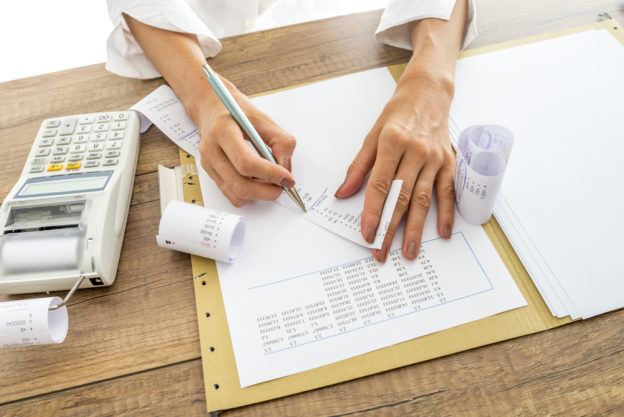The entrepreneurial spirit that has taken hold of today’s workforce has led to many people jumping into self-employment, freelancing, and gig work. Unfortunately, being an expert in the products or services you provide does not make you an expert in managing business and personal finances. Many sole proprietorships and individual freelancers are lost when it comes to the related financial matters.
Even if you are not new to running your own business, it is a good time to review your spending practices. Especially if you are a one-person-show and in charge of the household finances, you may be missing important business deductions. Furthermore, newly adopted IRS policies aimed at lessening the frequency of unreported income by individual gig workers make it more important than ever to keep business and personal accounts separate.
Here are a few simple things you can easily implement to get your personal and business finances under control.
Open a separate business account
Opening a separate business account through which all of your business receipts and expenses pass is important for keeping your business and personal accounting separate. Your bank will have their own rules about qualifications for business banking accounts, but even if you don’t qualify you should separate these transactions. Open a secondary personal bank account for business accounting purposes, even if you have to go to another bank to do so.
Keep receipts separate
As a general rule, most people don’t need to worry about keeping personal receipts. However, if you have purchased something that has a warranty or other guarantee you might want to keep personal receipts for later reference. If such occasions arise, make sure that you place the personal receipts in a different location from business receipts. This will make things much easier at tax time.
You should also make sure that you keep your personal and business receipts separate because some receipts might appear personal in nature, but actually be deductible. A common example of these missed receipts or deductions are business lunches.
Keep track of shared personal and business expenses
If you use part of your home for business purposes, you may have shared expenses that you must divide at tax time. You can deduct a portion of your household operation costs such as rent, utilities, internet, cable, mobile plans, and sometimes even streaming services, depending on the needs of your business activities.
Make sure that you track these expenses separately so that you can divide them appropriately as business expenses at tax time. Some accounting software used by individuals and small businesses give you the ability to easily separate expenses by percentage.
Create a separate business budget
Especially as a freelancer or gig worker, creating and maintaining a separate business budget might seem like unnecessary added effort. It is actually very important to have separate and easily identifiable personal and business budgets. Business receipts or payments from clients should be filtered through the business account, with only the amount of personal bills going to the personal account. Do not dip into your business budget to pay personal bills, and do not dip into you personal budget to keep your business afloat. Balance is key.
Get separate business and personal checks
Separate checkbooks are just as essential as separate bank accounts for your personal and business purposes. By using different checks and carefully logging all expenses in their corresponding registers, it’ll make it just that much easier to review your spending come tax season.
While personal checks offer the basic features needed for personal expenses, business checks often come with side-tear vouchers and deduction stubs for improved record-keeping. In addition, business checks have added security features to prevent fraud. This is important when you are a small business that can’t afford such losses. Furthermore,

